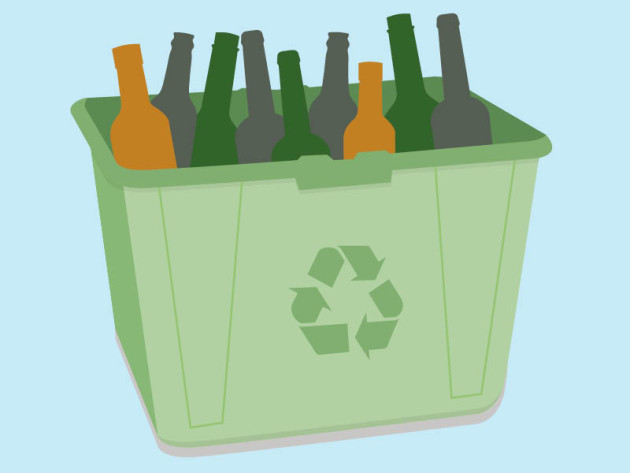
Soapbox: The need to reuse and refill
Muriel Chatel, CEO of Sustainable Wine Solutions, is conducting a pilot with restaurants to prove that most bottles can be saved from waste and reused or upcycled. Here, she makes the case for large-scale refill and reuse
Can we, as an industry, just agree on something, already? Can we agree that we need to embrace the circular economy (CE) and collaborate to develop perennial reuse models for the glass bottle? Glass has a greater environmental impact than PET, aluminium or bag in box – and there is no doubt that for the glass bottle to earn the right to be part of the solution alongside alternative formats, a new supply chain is necessary to keep bottles in use for as long as possible.
The UK consumes on average 1.77 billion bottles of wine per year, with all glass bottles being single use. Each bottle, takes 500g of CO2 to manufacture and an additional 500g of CO2 to recycle. Currently only 68% of the UK’s glass wine bottles are recycled, with the remaining downgraded to be used in aggregates disposed of in landfill!
Climate change and consumer awareness are demanding new sustainable initiatives. Governments from all over the world are adopting strategies to encourage refill and reuse. Inflation rising and the rapid depletion of the world’s sand reserves could leave supplies of the high-quality sand used in the glass industry exhausted within 20 years.
ReWINE, a Catalan bottle deposit scheme pilot from Sept 2016 to Dec 2020 proved that reusable strategies are a viable alternative, economically and environmentally. The project involved consumers, producers, bars, restaurants, wholesalers and shops coming together to pilot a bottle deposit scheme, from washing, labelling, bottling and distribution on the market and until their collection. A total of 150,000 bottles were sold under the ReWINE label.
The pilot highlighted that the distance between bottling, distribution and washing is critical. It also found that bottle deposit schemes worked best in the HORECA (hotel, restaurant, café) industries: 21% of reusable bottles were recovered in stores and supermarkets, where consumers had to return the empty bottle, while in the HORECA market, the level of return soared to 96%.
We at Sustainable Wine Solutions came to certain conclusions that go against common fallacies: all bottles over 390g are in principle reusable. We don’t need to wait for standardisation to happen before moving towards circular models. What we need are innovations to be able to deal with bottles of all sizes, remove all labels and transform household recycling points into reuse deposit points.
All government bottle deposit schemes should be conceived around a reuse strategy and not a recycling strategy. A reuse strategy doesn’t necessarily mean that the bottle needs to get back to the point of purchase. It simply means that the bottle needs to be reconditioned to be used by someone else.
↓
The good news
All businesses, regardless of size, can enter a circular distribution model through a range of options:
Run a bottle deposit scheme through retail or HORECA schemes.
Buy ‘reconditioned bottles’ from a bottle supplier or washing facility.
Supply in bulk or bottles via distributors running bottle deposit schemes (such as Sustainable Wine Solutions).
Increasing bulk import distribution into the UK and bottling locally using a return bottle scheme would reduce greenhouse gas (GHG) emissions potentially by up to 80%, thus reducing the GHG impact considerably.
Transforming household recycling to cater for bottle reuse is the easiest way to reach consumers. According to the Realising Reuse report released in 2021, scaling up reuse in the food and beverage sector by 50% by 2030 has the opportunity to save 27.1 million tonnes of resources. Undoubtedly, start-ups have a role to play in moving towards reuse and refill systems.
↓
Call to action
Could we, as an industry, collaborate to adopt a 25% refill and reuse quota? The appellation system must be reformed, too. Too many insist on bottling within the appellation for no valid reasons, which is a problem for bulk imports. Consumers care more about sustainability than the appellation system. The wine and drinks industries must develop a joint strategy.
Keywords:
- wine
- UK
- distribution
- consumers
- bottles
- bottle
- Sustainable Wine
- scheme
- glass
- deposit
- PET
- GHG
- refill
- Sustainable Wine Solutions
- reuse
- bottle deposit
- deposit schemes
- deposit scheme
- wine solutions
- bottle deposit schemes
- bottle deposit scheme
- washing facility supply
- bottles via distributors
- HORECA
- CE




